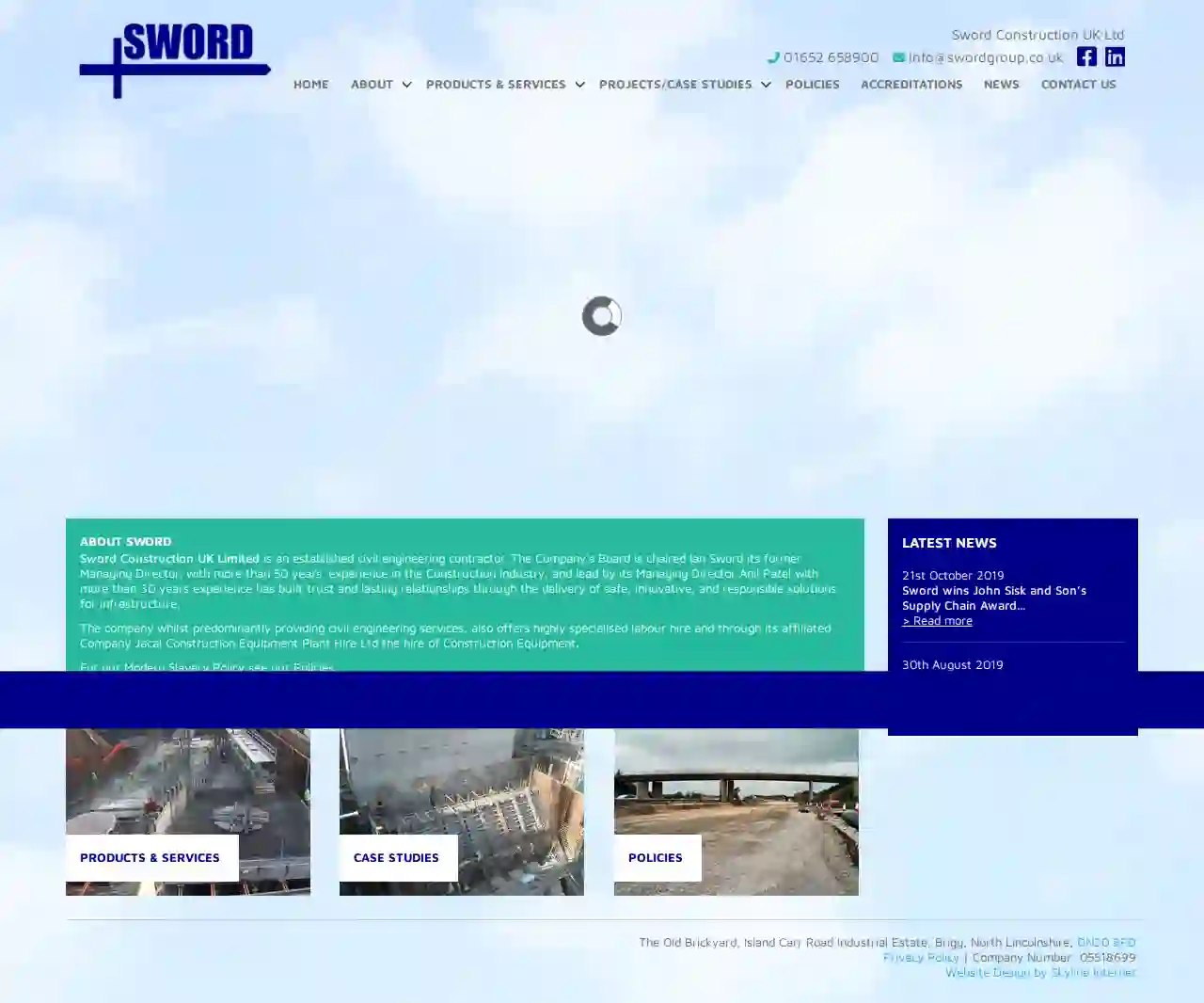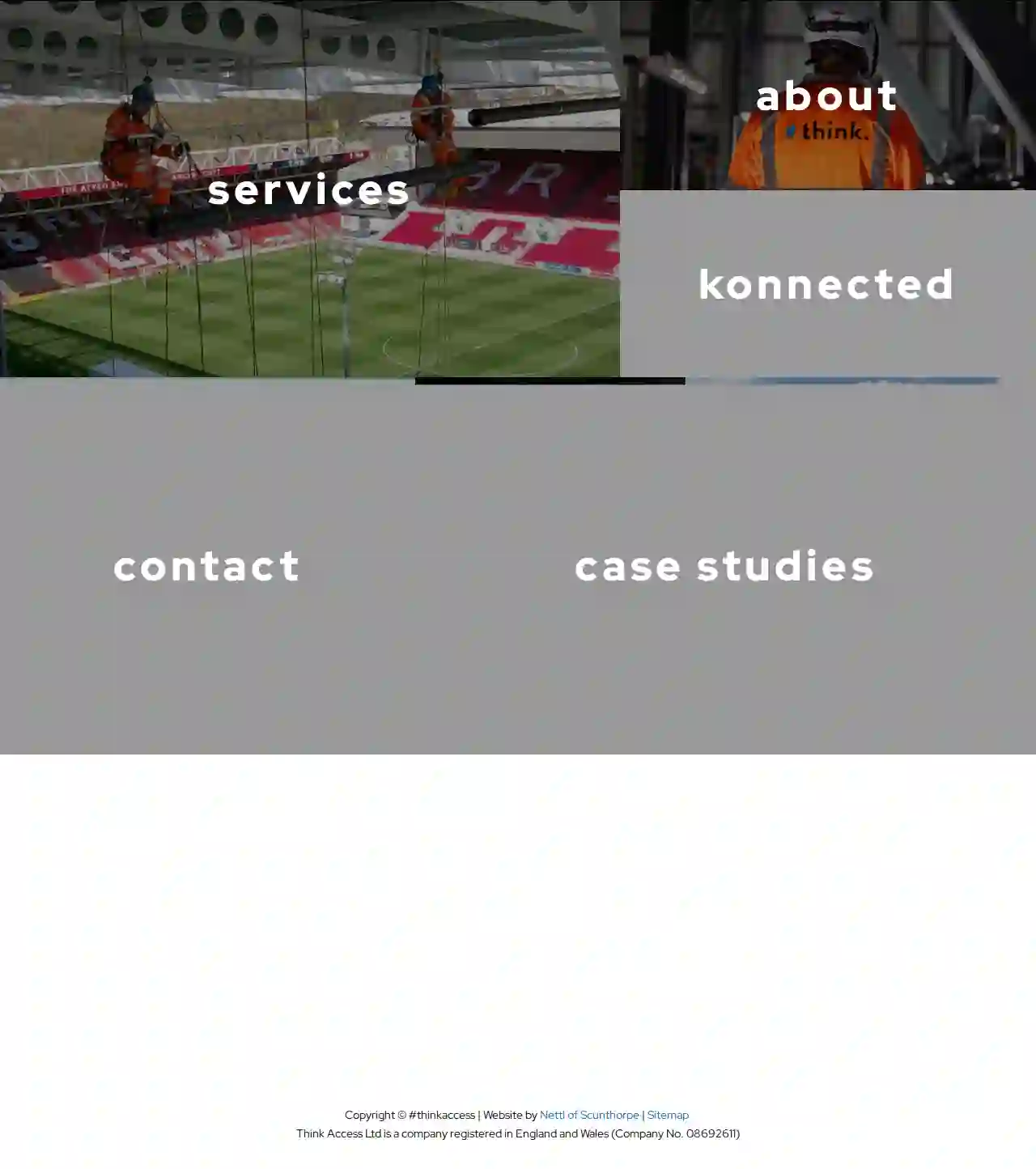Excavation Contractors Scunthorpe
Find the best Excavation Contractors in Scunthorpe
Get multiple Excavating Contractor quotes for your project today! Compare profiles, reviews, accreditations, portfolio, etc... and choose the best service.

Sword Construction UK Ltd
35 reviewsThe Old Brickyard, Island Carr Road Industrial Estate, Brigg, North Lincolnshire, DN20 8PD, GBAbout Sword Sword Construction UK Limited is an established civil engineering contractor. The Company's Board is chaired by Ian Sword, its former Managing Director, with more than 50 years’ experience in the Construction Industry, and led by its Managing Director Anil Patel with more than 30 years experience. Sword has built trust and lasting relationships through the delivery of safe, innovative, and responsible solutions for infrastructure. The company, whilst predominantly providing civil engineering services, also offers highly specialised labour hire and through its affiliated Company Jacal Construction Equipment Plant Hire Ltd the hire of Construction Equipment. For our Modern Slavery Policy see our Policies.
- Services
- Why Us?
- Gallery
Get Quote- G
G & A Hardscape's
54 reviewsScunthorpe, GB- Services
- Why Us?
Get Quote 
Think Access Ltd
41 reviewsUnit 1, The Courtyard, Scunthorpe, GBThink Access We are a leading provider of access solutions for the construction, events and infrastructure industries.
- Services
- Why Us?
- Gallery
Get Quote- HL
HL Engineering Contractors Ltd
4.33 reviewsScunthorpe, GB- Services
- Why Us?
Get Quote 
M Toyne Groundworks
44 reviewsScunthorpe, GBM Toyne Groundworks: Your Trusted Civil Engineering Partner M Toyne Groundworks is a reputable civil engineering company dedicated to providing exceptional services to both the public and private sectors. We boast a wealth of experience in a wide range of construction and civil engineering projects, ensuring we can meet your specific needs. Our team of skilled professionals is committed to delivering high-quality workmanship and exceeding client expectations. We take pride in our attention to detail, ensuring every project is completed to the highest standards. We understand the importance of working closely with our clients, providing clear communication and regular updates throughout the project lifecycle. Our goal is to build lasting relationships based on trust, transparency, and mutual respect. Whether you require drainage solutions, foundation construction, or any other civil engineering service, M Toyne Groundworks is your reliable partner. We are committed to delivering projects on time and within budget, while maintaining the highest safety standards. Contact us today for a free, no-obligation quote and let us help you bring your vision to life.
- Services
- Why Us?
- Gallery
Get Quote- Ma
Mantank Environmental Services Scunthorpe
3.73 reviewsScunthorpe, GB- Services
- Why Us?
Get Quote - CL
CLS Civil Engineering,Demolition & Survey
33 reviewsScunthorpe, GB- Services
- Why Us?
Get Quote - Pa
Paragon Traffic Management Ltd
4.720 reviewsScunthorpe, GB- Services
- Why Us?
Get Quote - AB
ABEY Construction Company
1Scunthorpe, GB- Services
- Why Us?
Get Quote - Em
Emerge Construction & Civils
4.312 reviewsScunthorpe, GB- Services
- Why Us?
Get Quote
Over 11,537+ Excavation Contractors on our directory
Our excavation contractors operate in Scunthorpe and surroundings!
ExcavationHQ has curated and vetted Top Excavation Contractors in and around Scunthorpe. Find a top & trustworthy contractor today.
Frequently Asked Questions About Excavation Contractors
- Project Size and Scope: Larger, more complex excavations naturally take longer.
- Soil Conditions: Rocky or challenging soil types can slow down progress.
- Site Accessibility: Limited access might require more time for maneuvering equipment and hauling materials.
- Weather: Inclement weather can cause delays.
- Permitting and Inspections: Waiting for permits or inspections can extend the timeline.
- Clearly Define the Scope: Outline the project's goals, including the excavation area, depth, grade, and intended use.
- Obtain Necessary Permits: Research and acquire any required permits from your local authorities.
- Mark Utility Lines: Contact your utility companies to locate and mark underground utilities to prevent damage.
- Communicate with Neighbors: Inform your neighbors about the project's timeline and potential noise or disruptions.
- Prepare the Site: Clear any obstacles, such as vegetation, furniture, or structures, from the excavation area.
- Discuss Safety Protocols: Review safety procedures with the contractor to ensure a safe work environment.
How long does an excavation project take?
What is the difference between cut and fill excavation?
Cut: Involves excavating soil from an area where the existing grade is higher than the desired grade.
Fill: Refers to using the excavated soil ('cut' material) to raise the grade in an area where the existing grade is lower than desired.
This method minimizes the need to import or export soil, reducing costs and environmental impact. It's commonly used for site preparation, road construction, and landscaping.
What should I do before excavation starts?
What is the difference between topsoil and subsoil?
Topsoil: The uppermost layer, typically rich in organic matter, nutrients, and microorganisms. It's essential for plant growth and is often darker in color.
Subsoil: The layer beneath the topsoil, containing less organic matter and generally denser. It provides support for roots but is less fertile than topsoil.
During excavation, topsoil is often removed and preserved separately for later use in landscaping, while subsoil is typically used for backfilling or other less demanding applications.
How long does an excavation project take?
- Project Size and Scope: Larger, more complex excavations naturally take longer.
- Soil Conditions: Rocky or challenging soil types can slow down progress.
- Site Accessibility: Limited access might require more time for maneuvering equipment and hauling materials.
- Weather: Inclement weather can cause delays.
- Permitting and Inspections: Waiting for permits or inspections can extend the timeline.
What is the difference between cut and fill excavation?
Cut: Involves excavating soil from an area where the existing grade is higher than the desired grade.
Fill: Refers to using the excavated soil ('cut' material) to raise the grade in an area where the existing grade is lower than desired.
This method minimizes the need to import or export soil, reducing costs and environmental impact. It's commonly used for site preparation, road construction, and landscaping.
What should I do before excavation starts?
- Clearly Define the Scope: Outline the project's goals, including the excavation area, depth, grade, and intended use.
- Obtain Necessary Permits: Research and acquire any required permits from your local authorities.
- Mark Utility Lines: Contact your utility companies to locate and mark underground utilities to prevent damage.
- Communicate with Neighbors: Inform your neighbors about the project's timeline and potential noise or disruptions.
- Prepare the Site: Clear any obstacles, such as vegetation, furniture, or structures, from the excavation area.
- Discuss Safety Protocols: Review safety procedures with the contractor to ensure a safe work environment.
What is the difference between topsoil and subsoil?
Topsoil: The uppermost layer, typically rich in organic matter, nutrients, and microorganisms. It's essential for plant growth and is often darker in color.
Subsoil: The layer beneath the topsoil, containing less organic matter and generally denser. It provides support for roots but is less fertile than topsoil.
During excavation, topsoil is often removed and preserved separately for later use in landscaping, while subsoil is typically used for backfilling or other less demanding applications.